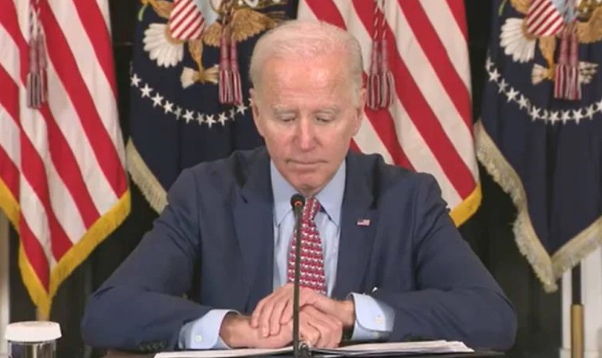Last week, when the US Congress hastily passed an eleventh-hour deal to prevent a government shutdown, it did so at the expense of one of President Joe Biden’s top foreign policy priorities: US military aid to Ukraine, according to Foreign Policy.
Speaker of the House Kevin McCarthy did not support the bill to allocate 6bn dollars for additional aid to Ukraine, after which an interim agreement was made to maintain funding for the US government for six months. The far-right minority of Republicans in the House of Representatives opposed aid to Ukraine.
Congress will have to renegotiate a separate aid package for Ukraine. A significant number of both Republicans and Democrats are in favour of additional American aid to Ukraine, Foreign Policy reports.
However, both in Kyiv and Washington are concerned about the situation. Many officials see the US government shutdown as a sign of weakening US resolve to support Ukraine in the war. Biden said ahead of the deal to avert the government shutdown:
“We cannot, under any circumstances, allow American support for Ukraine to be interrupted.”
The way the situation in Washington develops further could have a huge impact on Ukraine. According to the State Department, the US has sent about 44bn dollars in aid to Ukraine, which is more than seven times Kyiv’s defence budget until 2022, according to Foreign Policy.
The long-awaited Ukrainian counter-offensive in the spring was halted by the Russian army, and Kyiv’s breakthroughs are very limited, a sign of a long war. Russia is ramping up production of artillery and other munitions, while Ukraine needs increased firepower from the West, especially the US, as Europe’s defence industry is not up to date.
At the same time, the entire world is keenly watching the high-level political discussions about giving Kyiv the Washington assistance that will make or break their ability to wage war. Yehor Cherniev, a Ukrainian lawmaker who serves on the country’s National Security Committee, said:
“We feel hostage to the internal political struggle in the United States. If assistance is delayed, this will mean a sharp drop in our firepower and an increase in casualties.”
Ukraine’s supporters believe that the Republican policy plays into Russia’s hands and will ultimately undermine Ukraine’s ability to defend itself and lead to increased instability in Europe. They argue that with minimal assistance from the United States – just a tiny fraction of the annual US defence budget and with no Americans at risk – Ukraine is helping to weaken the military of one of the United States’ main geopolitical rivals. Artis Pabriks, a former Latvian Defenсe Minister, said:
“We are worried about general fatigue on some allied countries, including Hungary and the latest elections in Slovakia. Latvia strongly believes that support to Ukraine against totalitarian invasion cannot be used and misused in national politics.”
Opponents of further aid believe that Washington has already provided Ukraine with billions of dollars in economic aid and weapons. They point out that it is time to reallocate state resources to more immediate problems, such as the southern border and preparations for a new geopolitical showdown with China.
This argument is gaining more acceptance as political gravity begins to take its toll on Ukraine’s campaign for war with Russia. European officials privately fear that the start of the 2024 election season will be a breaking point for historic levels of US military aid to Kyiv. A German official, speaking on condition of anonymity to talk candidly about another country’s internal political deliberations, said:
“As long as it takes as the correct and consistent approach was clearly questioned by the Republicans. This certainly casts down on our collective Western resolve.”
Congress, as the body authorised to manage the state budget, can influence the decision to help Ukraine further or not. US assistance is seen as one of the most important components of Ukraine’s war strategy. In addition to historic amounts of military aid to Ukraine, the US is currently spending about $3 billion to support Ukraine’s defence industry and is helping to bridge the budget deficit by providing humanitarian and energy assistance. Rachel Rizzo, an expert on defence issues at the Atlantic Council, said:
“There is still a broad bipartisan consensus around continued support for Ukraine, but the skeptical voices on Capitol Hill are loud. The recent infighting within the Republican Party shows that a small but boisterous coterie of detractors can really stymie progress.”
Since the beginning of the war, the US has pledged about 75bn dollars in aid to Ukraine, of which about 44bn dollars is military aid. Military aid accounts for about 3.4 per cent of the US spending on the Pentagon, according to Foreign Policy.
As part of the presidential agreement, the United States may send Ukraine about $5 billion worth of weapons. Kyiv is still waiting for billions of dollars in pre-announced shipments from the Ukraine Security Assistance Initiative, a US fund that can secure weapons orders for the Ukrainian army from US defence contractors.
Ukrainian officials and experts tried to explain that the congressional move was just a blip, not a systemic change. However, Kyiv’s frustration was palpable.
